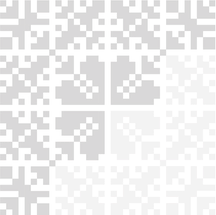C6 M1 L2 Grammar
6 | Modul 1: Gramatika
Hoćeš-nećeš, moraš
6 | 1 | Lekcija 2: Izlet za vikend
| Future Tense
Just like the verb biti which has its stressed form (ja jesam) and unstressed form (ja sam), the verb htjeti is the only other verb in Croatian that has the same structure. In our previous lesson you already encountered the stressed form of the verb.
HTJETI - stressed form | |||||
SINGULAR | PLURAL | ||||
ja | hoću | mi | hoćemo | ||
ti | hoćeš | vi | hoćete | ||
on/-a/-o | hoće | oni/-e/-a | hoće | ||
The unstressed form of verb htjeti is as follows:
HTJETI - unstressed form | |||||
SINGULAR | PLURAL | ||||
ja | ću | mi | ćemo | ||
ti | ćeš | vi | ćete | ||
on | će | oni | će | ||
ona | će | one | će | ||
* As you can see, the unstressed form is created by cutting off the initial ho- part of the verb in its stressed form.
When do we use stressed and when do we use the unstressed form of the verb htjeti?
Stressed form | – is used when we intend to indicate ‘’wanting’’ – like in the examples: (1) Ja hoću tortu, or (2) Ja hoću kupiti tortu. – is used when we want to ask if someone will do something in the future – like in the example: Hoćeš li ići u Zagreb? |
Unstressed form | – is used to form the future tense in Croatian. |
| Future Tense: Writing and Pronunciation
| Writing
The most common structure of creating the future tense in Croatia is:
subject (who is doing what) | unstressed form of verb htjeti | infinitive of the verb |
↓ | ↓ | ↓ |
James | će | učiti |
However, when we know who the subject of the sentence is, in everyday conversation, people often omit the subject. Since we know it is James who will be studying, we can easily say:
infinitive of the verb | unstressed form of verb htjeti |
↓ | ↓ |
Učit | će |
As you can see, the order is important as you will write the infinitive form of the verb differently. Look at both sentences.
James će učiti. | Učit će. |
učiti | učit |
As you can see, when omitting the subject of the sentence, the word order is different. The infinitive takes the first place, followed by the unstressed form of htjeti. If the infinitive precedes the unstressed form of htjeti, then the final –i of any –ti verb is omitted. The final –i does not disappear when the infinitive ends in -ći.
Look at the following examples:
Infinitives Ending in -ti | ||
shortened infinitive | Kupit ću tortu. | I will buy a cake. |
full infinitive | Kupiti ću tortu. | |
Many of the verbs you know now will form their future in this way, e.g. kupit ću, razumijet ću, govorit ću, etc.
Infinitives Ending in -ći | ||
full infinitive | Peći ću tortu. | I will bake a cake. |
shortened infinitive | Peć ću tortu. | |
You know several verbs that will form their future in this way, e.g. reći ću, ići ću, etc.
| Speech
In speech, when the infinitive takes the first place followed by the unstressed form of htjeti, you will need to pronounce everything as one word! That means that in the sentence: Učit će hrvatski jezik. - the future tense structure will be pronounced as one word /učiće/. In pronunciation the -t- is omitted. It is not natural to make a pause between ‘’kupit’’ and ‘’ću.’’ In other words, it is not natural to hear the final ‘’t’’ of the verb’s infinitive form.
| Question form in the Future Tense: Will you…?
In order to express the question form, you need to follow the structure:
stressed form of verb htjeti | LI | infinitive of the verb |
↓ | ↓ | ↓ |
Hoćeš | li | učiti? |
| Negative form in the Future Tense: I Will Not…
In order to create a negative form of the verb htjeti, you need to use NE the unstressed form, written all together.
HTJETI - negative form | |||||
SINGULAR | PLURAL | ||||
ja | neću | mi | nećemo | ||
ti | nećeš | vi | nećete | ||
on/-a/-o | neće | oni/-e/-a | neće | ||
Using negation, you ultimately express the idea that you will not do something in the future.
G | 6.1 Zadatak 4. Pitanje ili tvrdnja? |
Listen to the following sentences and decide if they indicate a question about a future action or if are they expressing a statement about a future action.
|
| Question | Statement |
1 | Hoćemo li ići na sladoled? |
|
|
2 | Vi ćete ići na pizzu. |
|
|
3 | Hoćeš li kupiti jogurt? |
|
|
4 | Ja ću kupiti tortu. |
|
|
5 | Hoće li on kupti vino? |
|
|
6 | Hoćeš li vodu? |
|
|
7 | Hoće li ići na kavu? |
|
|
G | 6.1 Zadatak 5. Odgovori na pitanja |
Read the question and then listen to the two possible answers. Indicate which sentence is the appropriate one as the answer to each question.
|
| a | b |
1 | Hoćemo li ići na pizzu? | Da, ići ćeš na pizzu. | Da, ići ćemo na pizzu. |
2 | Hoćete li kupiti auto? | Da, kupit ćemo auto. | Da, kupit ćete auto. |
3 | Hoćeš li kupiti jogurt? | Da, kupit ćete jogurt. | Da, kupit ću jogurt. |
4 | Hoće li kupiti tortu? | Da, kupit ću tortu. | Da, kupit će tortu. |
5 | Hoće li on kupiti vino? | Da, kupit ću vino. | Da, kupit će vino. |
6 | Hoćeš li vodu? | Da, hoću vodu. | Da, hoćemo vode. |
7 | Hoće li ići na kavu? | Da, ići ćemo na kavu. | Da, ići će na kavu. |
G | 6.1 Zadatak 6. Gramatika |
Verbs biti and htjeti are:
the only two irregular verbs in BCMS
the only two verbs that have two forms
the only two verbs that have the same endings
Verb htjeti is used to form:
present tense
past tense
future tense
Verb htjeti can be accompanied immediately with:
Locative case
Nominative case
Infinitive
Accusative case
Stressed form of htjeti is used:
to express a desire
to express regret
to express question
to express doubt
Unstressed form of htjeti is used:
to express the past tense
to express doubt
to express negation
to express future tense
In Croatian writing form, what is the correct form:
Gedati ću film.
Ići ću na operu.
Gledaću film.
Kuhat ću ručak.
Iću u školu.
Ja ću da idem u kino.
In Croatian, what is the correct form:
Gedati ću film.
Ići ću na operu.
Gleda ću film.
Kuhat ću ručak.
Iću u školu.
How do we create the Croatian question form in the future tense?
unstressed form li infinitive noun
stressed form li infinitive noun


